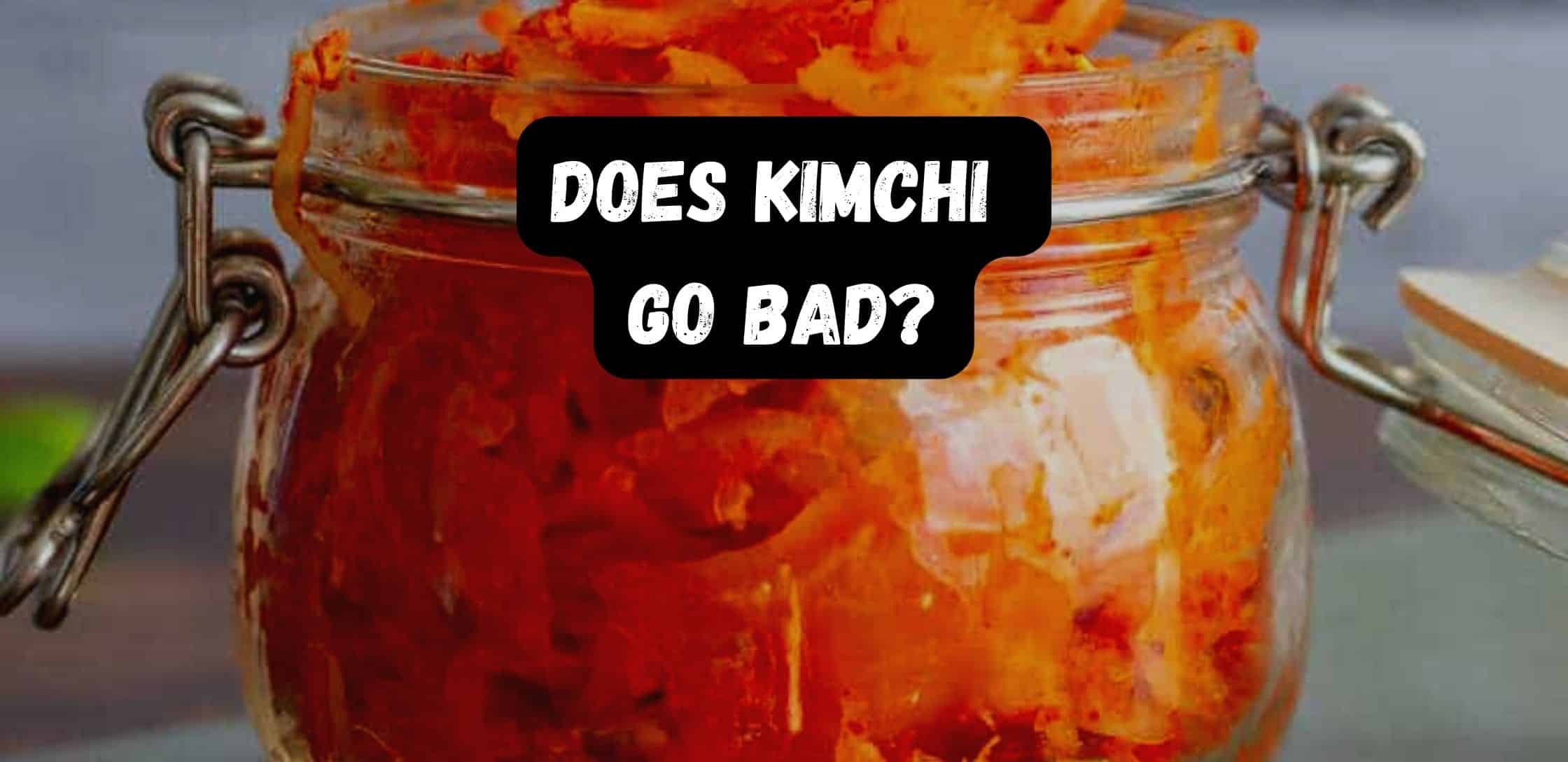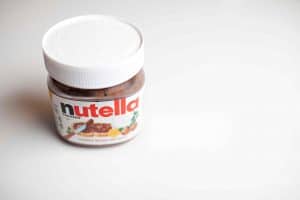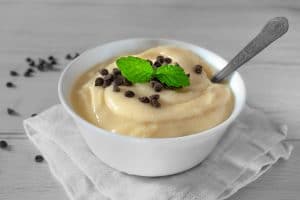Does Kimchi Go Bad?
Important Note: When you buy through our links, we may earn a commission. As an Amazon Associate we earn from qualifying purchases. Content, pricing, offers and availability are subject to change at any time - more info.
From the first time I tried kimchi, I was addicted. It is salty, spicy, and a perfectly delicious side and appetizer. Kimchi is a traditional Korean side dish that is made from salted and fermented cabbage along with other flavors and spices. You can find kimchi in Korean restaurants and is a staple in Korean households and is eaten almost every day if not with every meal. Many people find it similar to sauerkraut and has a bold, acidic flavor.
Kimchi is most commonly made with napa cabbage and radish along with ginger, garlic, Korean chili, and salt. There are of course plenty of variations, but these are the basic ingredients of kimchi.
If you are like me and buy bottle after bottle of kimchi but then end up throwing most of it away because you don’t finish it and don’t know how long it lasts then this article is for you. You will find out if kimchi can go bad, how to store it and how to figure out if it has spoiled, and more.
Kimchi is sold in two forms pasteurized and unpasteurized kimchi. Unpasteurized kimchi has live bacteria, which means it has not been killed by heat. The live culture allows the kimchi to continue fermenting, which is why unpasteurized kimchi gets better as the days go by. On the other hand, this means that at one point the taste goes from delicious to sour as the fermentation process continues. This is why kimchi should be stored in the fridge.
Pasteurized kimchi does not have live cultures as the pasteurization process has killed off all the bacteria, so there is no fermentation process and no change in taste. Both types of kimchi are delicious and addictive.
Does Kimchi Go Bad?
Although kimchi is highly acidic it does have an expiration date, so yes, kimchi does go bad. Depending on the type of kimchi you have or have bought from the store it needs to be stored properly. Sometimes kimchi can be stored outside, sometimes only in the fridge. It needs to be stored in an airtight container and should not get contaminated. If you take proper precautions, kimchi can be enjoyed for a long time.
Otherwise, your kimchi can turn rancid and spoil much quicker than its expiration date. Store-bought kimchi will come with a best-by date so try and use up the kimchi either by that date or a little bit after. Longer than that, the kimchi will start turning sour and losing its crispness.
How Long Does Kimchi Last?
Both pasteurized and unpasteurized kimchi have pretty similar shelf lives, it is only their storage method that differs.
- Unpasteurized kimchi can be stored outside and does not have to be refrigerated even if opened.
- Opened unpasteurized kimchi will be good for 2-4 days. After that, it starts souring and the kimchi should be refrigerated.
- Opened and unpasteurized kimchi will be good in the fridge for about a month after its best-by or sell-by date.
- Unopened, unpasteurized kimchi will last in the fridge anywhere between 4 months to a year. The huge gap is because unpasteurized kimchi will continue fermenting when left out. If it is only kept in the fridge then the fermentation process has slowed down, so it will continue being edible until it starts turning.
- Pasteurized kimchi need not be refrigerated as there is no fermentation process due to the absence of live cultures. But if you do store it in the pantry, it will remain fine to consume for about a week.
- Store the kimchi in the fridge and it will be good for 2-4 months after the best-by date.
- Unopened kimchi will be good for about 8-12 months in the fridge, sometimes even a year.
- If you freeze your kimchi it will last for anywhere between 12 and 18 months.
- Homemade kimchi has a similar shelf life and should be refrigerated. The main reason unpasteurized kimchi has to be refrigerated is that the cold slows down the fermentation process and keeps the kimchi good longer. If not kept below 39 degrees F, it accelerates spoilage.
| Type of Kimchi | Pantry | Fridge | Freezer |
| Unpasteurized, opened kimchi | 2-4 days | Sell-by date + 1 month | 12-18 months |
| Unpasteurized, unopened kimchi | About 5 days | Sell-by date + 4-12 months | 12-18 months |
| Pasteurized, opened kimchi | 5-7 days | Sell-by date + 2-4 months | 12-18 months |
| Pasteurized, unopened kimchi | 1 week | Sell-by date + 8-12 months | 12-18 months |
The above table is an estimate, the actual shelf life of kimchi, like any other food, depends on a number of internal and external factors that need to be taken into account like storage conditions, quality of ingredients and so on.
How Best To Store Kimchi?
As mentioned above proper and adequate storage plays an important part in the shelf life of kimchi. You need to take some extra care while storing kimchi so that it stays good and lasts longer.
- Make sure your kimchi is in an airtight container.
- If you need to transfer the kimchi from the store-bought container, make sure you also transfer all the liquid and brine so that the kimchi lasts longer.
- Whether you are storing it in the pantry, or the fridge, ensure that the lid is tightly closed. If not closed properly not only will everything start smelling of kimchi, but it increases the chances of spoilage when left exposed to air and external elements.
- If you are freezing kimchi, you can either store it unopened in the container it came in or you can transfer it into a freezer-safe, airtight container.
- To thaw just keep it out in the fridge overnight.
- The longer kimchi is frozen the less crisp it will become. It will still taste good and be full of flavor but the kimchi will be softer.
How To Tell If Your Kimchi Has Spoiled?
- If your kimchi is soft and not as crunchy, don’t worry it has not spoiled. Over time the kimchi starts softening and losing its crispness. It is still consumable.
- Mold: If you see mold or any kind of growth on your kimchi throw it out, it has gone bad
- Smell: Kimchi generally has a strong smell, but if your kimchi smells “off” or rancid then throw it out. An overwhelmingly bad smell is an indicator of spoiled kimchi.
- Taste: Similarly, if your kimchi is extremely bitter then it has turned rancid.
- However, if your kimchi has just been getting more sour it means that the kimchi has been fermenting. Sour kimchi does not mean it has spoiled, but if it is extremely sour it will be inedible and unappetizing.
Kimchi is a delectable Korean delicacy that is hugely popular. It is packed with flavor and adds some extra zing to meals. But despite all its deliciousness, kimchi will go bad. So, take some extra care with storing your kimchi to enjoy it longer.
























